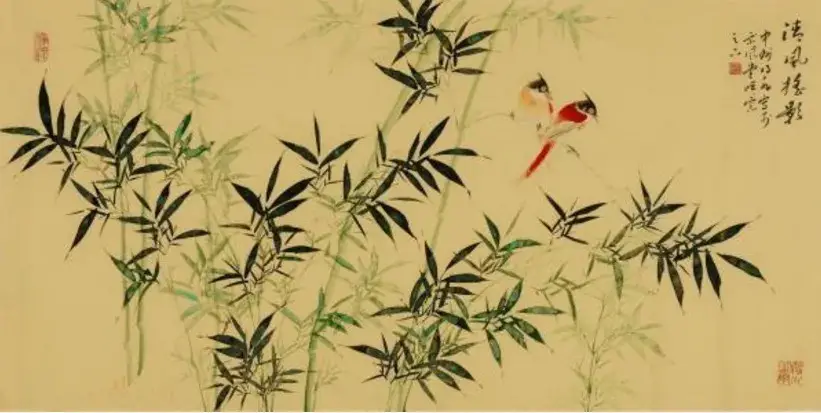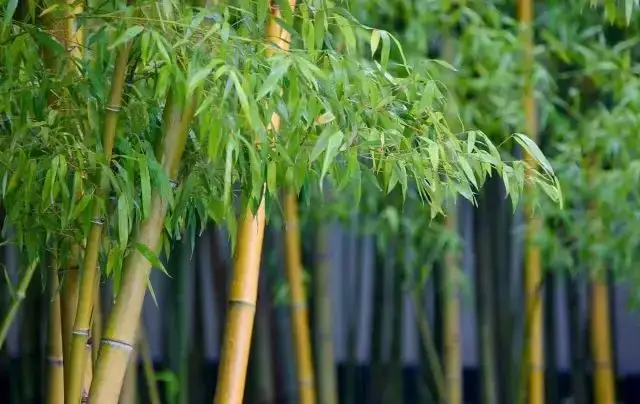Have you ever noticed the graceful sway of a bamboo grove, the way its slender stems seemingly dance in the wind? In China, bamboo is more than just a plant; it’s a symbol deeply woven into the fabric of its culture, art, and even philosophy. Its presence is felt everywhere, from exquisite calligraphy brushes to sturdy construction materials, each bearing a unique and profound meaning. But just what does bamboo symbolize in Chinese culture? Ready to embark on a journey to discover its fascinating story?

Image: sonofchina.com
The resilience of the bamboo plant, its ability to bend without breaking in the face of strong winds, has captured the imagination of Chinese people for centuries. Its image is often used to represent adaptability, humility, and unwavering strength in the face of hardship. Join us as we explore the rich history and symbolic significance of this versatile plant.
A History as Deep as Its Roots
The relationship between the Chinese people and bamboo is ancient, stretching back thousands of years. From the earliest written records, bamboo has been an indispensable part of daily life.
Imagine a time before paper, a world where information was passed down through generations etched onto fragile, perishable materials. Bamboo was a solution, its strong, hollow stems allowing for the creation of durable writing tablets, called bamboo slips, that could withstand the test of time. These slips, often strung together, became the earliest form of books, holding the wisdom and stories of ancient China.
Beyond recording history, bamboo found its way into every aspect of societal life. It was used to construct houses, bridges, and musical instruments, its versatility proving invaluable for a people who sought to live in harmony with nature.
The Symbolic Meanings of Bamboo: A Rich Tapestry
Bamboo’s symbolic significance in Chinese culture is complex and multifaceted, reflecting its deep connection to human experience.
1. Resilience and Determination
The very nature of bamboo, its ability to bend without breaking, embodies the idea of flexibility and resilience. In Chinese philosophy, “bending like bamboo” symbolizes the ultimate strength, the ability to adapt to challenging situations without compromising one’s core values. It’s a reminder that even in the face of adversity, one can find a way to navigate challenges with grace and determination.
In the world of Chinese painting bamboo is often depicted as a symbol of unwavering spirit even in the face of strong winds and storms. Its slender, yet sturdy, stalk is considered an icon of resilience and inner strength.

Image: sonofchina.com
2. Growth and Renewal
Bamboo is a fast-growing plant, a testament to the power of renewal and growth. It symbolizes the inherent potential within each person, the ability to overcome obstacles and achieve success. Its rapid growth is a constant reminder of the ever-changing nature of life, the importance of embracing new beginnings, and the continual journey of self-improvement.
3. Longevity and Prosperity
In many cultures, bamboo stands as a symbol of longevity and prosperity, a wish for a long and fulfilling life. This is particularly true in Chinese culture, where bamboo is often associated with the number eight, which is considered a lucky number. The long, slender stems of bamboo are seen as a representation of a long and fulfilling life, free from hardship and filled with happiness.
In Chinese art, bamboo is often depicted in intricate designs, especially during celebratory events like weddings, signifying a life filled with prosperity and growth.
4. Purity and Honesty
The hollow interior of a bamboo stalk holds a symbolic meaning of purity and honesty. This “emptiness” represents the absence of deceit, the pure and unadulterated heart. The clear, unblemished appearance of the plant further reinforces its association with purity, a testament to its inherent beauty and virtue.
5. Harmony and Friendship
The way bamboo grows in dense groves, each stalk interlacing with the others, signifies a sense of harmony and friendship. This symbolizes the importance of community and the interconnectedness of all living things. The strength of the bamboo grove is further understood to be a product of the collective strength of its individual stalks.
In Chinese tea ceremonies, bamboo is often incorporated into the design of tea trays and tea cups, symbolizing the importance of shared experiences, camaraderie, and creating a harmonious environment for connecting with others.
The Influence of Bamboo in Chinese Culture and Beyond
The rich cultural heritage of bamboo in China extends far beyond the symbolic realm. It has found its way into art, architecture, literature, and even the daily rituals of everyday life.
1. In the Hands of an Artist
From the delicate strokes of calligraphy brushes to the intricate designs of jade carvings, bamboo has served as both a medium and inspiration for Chinese artists for centuries. The smooth, flexible bamboo stalk makes for a perfect writing utensil, its unique texture allowing for precise control and delicate brushwork. The elegant lines of bamboo are often incorporated into traditional paintings, adding a touch of delicate beauty to landscapes, and even serving as a metaphor for the resilience of the human spirit.
2. Building a World with Bamboo
The strength and durability of bamboo have made it a cornerstone of traditional Chinese architecture. It is used in the construction of houses, bridges, and furniture, forming a vital part of the building materials used to create strong and sustainable structures for generations. The use of bamboo in construction reflects the mindful harmony between humans and nature, a testament to the ingenuity of Chinese architecture.
What Does Bamboo Symbolize In Chinese Culture
3. A Symbol of Enduring Strength Through The Ages
The influence of bamboo has spread beyond the borders of China, leaving its mark on various cultural practices and beliefs across the globe. The principles of resilience, flexibility, and harmony associated with bamboo have resonated with people across cultures who see it not merely as a plant but as a symbol of strength and perseverance.
The bamboo plant stands as a powerful reminder of the interconnectedness between nature and humanity, a beacon of resilience and a testament to the beauty of simplicity and strength.
Its presence in everyday life, from traditional art to modern architecture, serves as a constant reminder of the enduring strength of bamboo, and the wisdom it holds for generations to come.



/GettyImages-173599369-58ad68f83df78c345b829dfc.jpg?w=740&resize=740,414&ssl=1)


